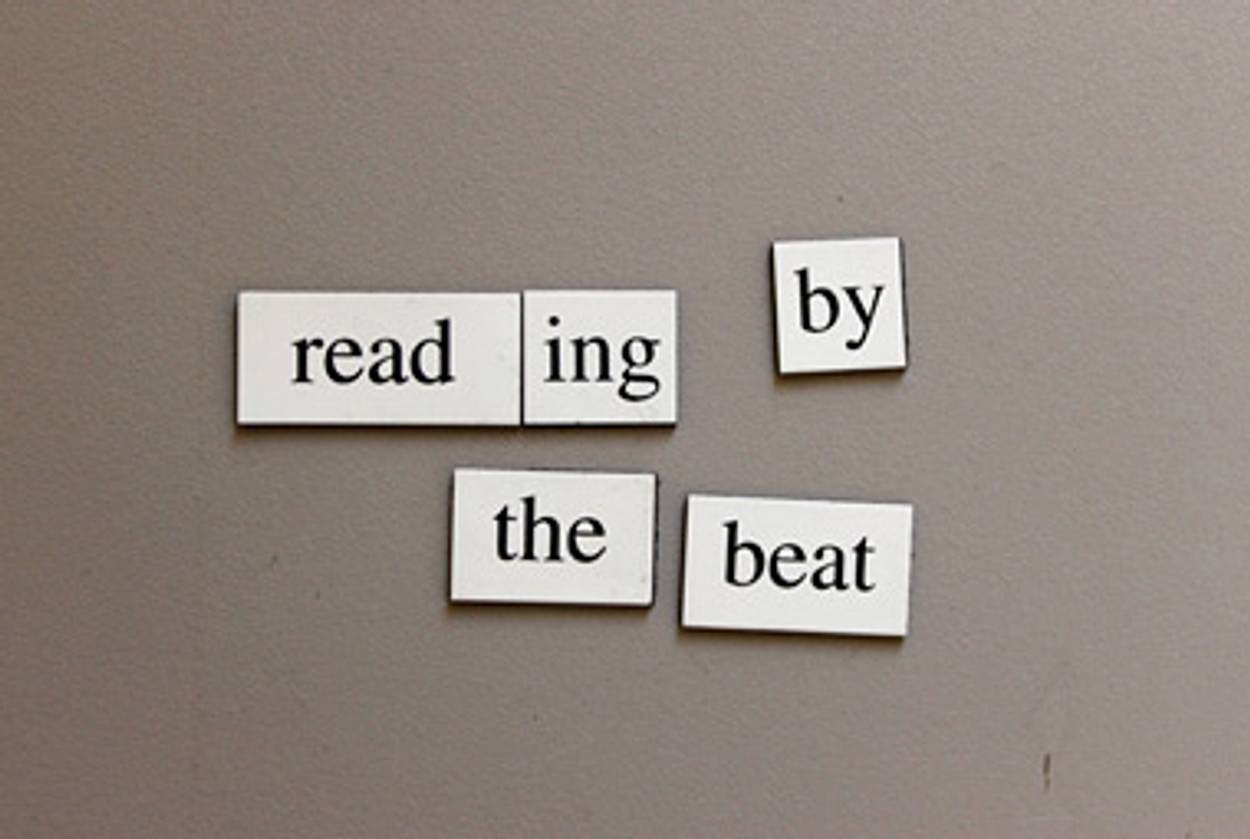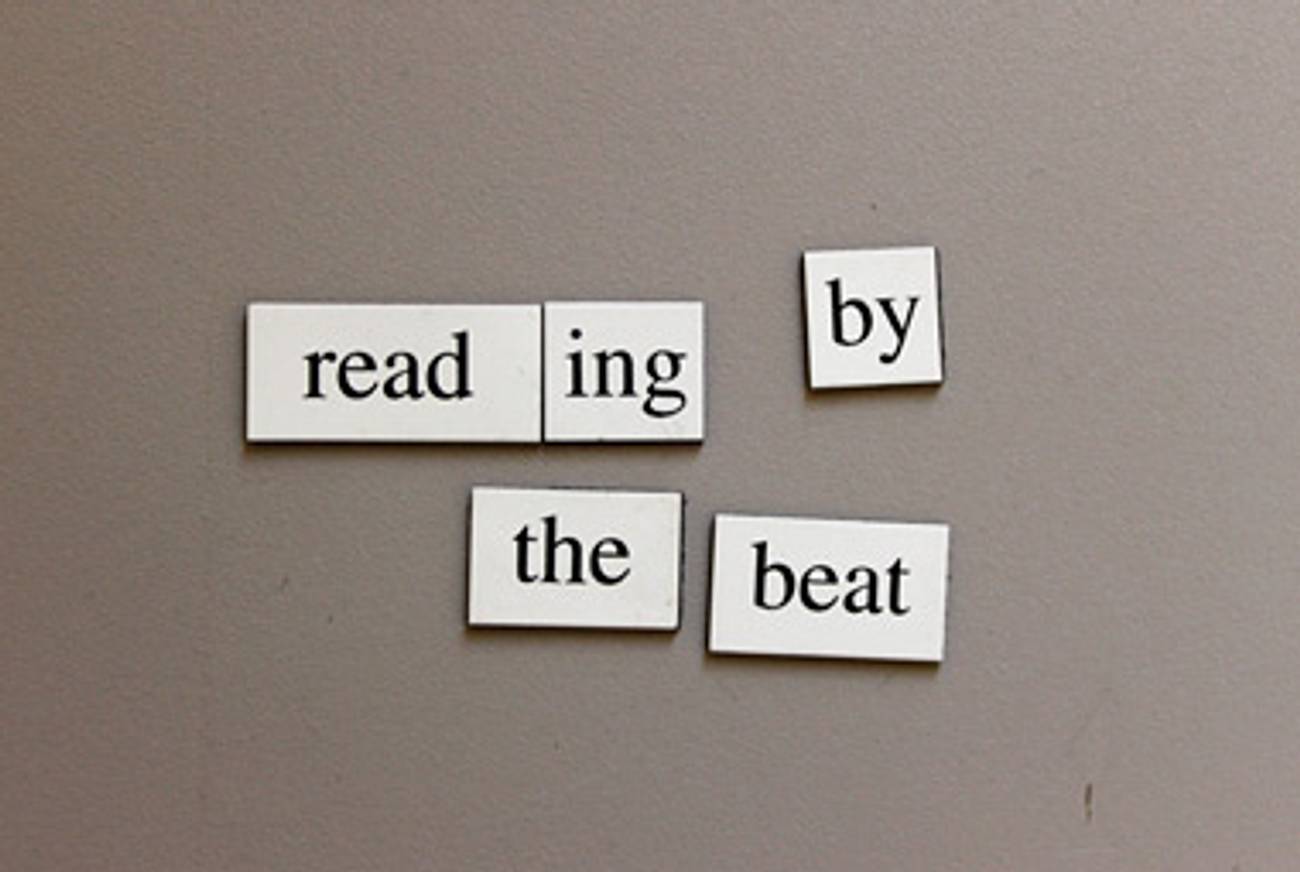Midrashic Sensibility
Rachel Blau DuPlessis and the poetry of textual reverence




For almost 25 years now, Rachel Blau DuPlessis has been working on what she predicts will be a six-volume poem titled Drafts. By my count, Pitch, which was just published, is number 4, and it weighs in at 180 pages. Drafts is already a big poem, considerable in every way.
The 20th century solved the problem of the epic by creating long serial works, what the poet Ron Silliman has called “life poems.” Like the great Modernist epics—Ezra Pound’s Cantos, Charles Olson’s Maximus Poems, Louis Zukofsky’s A, and John Berryman’s Dream Songs (to name just a few)—DuPlessis’ Drafts is made of discrete units that look, on the surface, like separate poems because their immediate occasions appear to be different. But like the other “life poems,” Drafts is bound together by the concentration of its attention and the durability of its concerns.
Duplessis is a noted feminist scholar, and it is no surprise that Drafts sees the political as the personal and that in Pitch it takes our war in Iraq head-on. As Duplessis says, “Every part of this is inflected by war.” Like her friend, teacher, and foil, George Oppen, she takes war as a question of individual responsibility. She is particularly bothered by the role of the poet in a period of conflict. She articulates this theme in a number of places and in “Hard Copy,” a complicated meditation on Oppen:
To resuscitate
The covenants that are
Available
To fabricate them as
Humane and secular
And thereby to address
Wrongs of the world, ruthlessness,
Despoiling and injustices:
Is the agenda in front of us.
DuPlessis lends nuance and hesitation to this bald statement of poetics through her line breaks. Not all covenants, just those that are available. Available covenants that will need to be fabricated further—created out of whole cloth (as we say of lies)—so that they can be humane and secular. (Does this mean that religion cannot be humane? In a recent essay she expresses a certain doubt on that score.) All this is our agenda. But whose? Hers, to be sure, and Oppen’s as well. And, it must be assumed, also ours.
DuPlessis refers to covenants and therefore to the Covenant, and like many progressives she seems to locate her Yiddishkeit in no small part in a secularized version of the Jewish demand for justice. In “Hard Copy,” the emphasis lies on witness and repair. But when she describes herself and her work, DuPlessis defines her Jewishness in broader terms. You could call it an attitude, “a reverence for textuality so intense it moves into an antic quality within the seriousness, an exilic, nomadic sensibility, a certain kind of humor … a quarrel with the negative space some call God, a particular, actually somewhat skeptical, somewhat hopeful attitude to fulfillment and messianic hope.”
I have culled this quote from an essay called “Midrashic Sensibilities” in order to suggest that her greatest tie to the practices of Judaism lies with her “reverence for textuality” and, more specifically, that aggressive, loving, and creative approach to texts we call midrash. Midrash became a preferred term among Jewish literary critics in the 1980s. It was used (and overused) as a way of both claiming and justifying the speculative forms of interpretation that marked that time. DuPlessis’ poems are midrashic to the extent that they are more often than not meditations on other poems or texts.
Her poem “Midrash,” (included in the previous collection of Drafts) is quite explicitly a lengthy meditation on the German philosopher T.W. Adorno’s often misquoted and usually misunderstood dictum that to write poetry after Auschwitz is barbaric:
Is this midrash on Adorno done?
No. Midrash is never over,
being neither lost nor won.
The individual commentary and the individual poem might end—the writer has to stop somewhere as that jokey little rhyme indicates—but by her lights midrash is never conclusive. Interpretation and argument always remain in draft because they can be taken up again and again.
The poems in Pitch aremidrashim in the broadest, reverentially textual sense. They take secular works, most often poems, as their subject. These poems serve as pre-texts, which she probes, questions, and answers. In “Hard Copy” she riffs on Oppen’s great “Of Being Numerous,” section by section. In “X-Posting,” DuPlessis takes the Austrian poet Ingeborg Bachmann’s “Keine Delikatessen” (“No Delicatessen”—an unfortunately prosaic translation which loses the notion of “delicate eating” in the German) and “trans-interprets” it: She borrows from it, elaborates on it, grabs sounds from it, and varies it.
DuPlessis’ notion of Jewish textuality is not limited to her version of midrash. In other instances, DuPlessis adopts recognizably modernized Jewish forms and modes. She reworks the genre of proverb, for instance, and enjoys mimicking the play of rabbinic questioning. Some of DuPlessis’ proverbs are jokes of a particularly nonreligious (or anti-religious) type: “Worship is a sinking ship.” Others appear to come from the Pirkei Avot by way of Kafka: “Winnow the old words; harrow the new; seed from the few.” The poem “Interrogation” sounds in places like the imitation pilpul you find in the French poet Edmond Jabes’ work. Here is Jabes:
What if the book were only infinite memory of a missing word?
Thus absence speaks to absence.
And here is DuPlessis:
But you say this isn’t written in your “voice”?
No it is not, and it is also not not.
You could say that the equivocation in the last line sums up her notion of her “midrashic sensibilities.” At the moment the poem speaks for her, it doesn’t. Or, at the moment that it appears to speak without her, it gathers her in.
Through joke, proverb, and questioning—by being there and being more than there—DuPlessis tries to go beyond what she takes to the limits of personal expression. She is not afraid of the didactic, of direct address, or of abstraction. After all, midrash is about debate and conversation and conviction. DuPlessis’ convictions are as strong as her ambitions are high: “Whenever I see the time is wrong,/I knock it hard to start it up again,/hitting the table where I do my work.” Her project therefore requires a constant pitch of seriousness, a continuous attentiveness on the part of both the poet and the reader.
Pitch seems difficult because it does not reflect on experience as much as take the act of reflection as its experience. It tends to be intellectual and intellectualizing. There is an important point to all this. Pitch—and here it is of a piece with everything that DuPlessis has ever done—actively dismantles old-style clichés of the female poet as a sensitive skylark. Pitch isn’t easy going (or easy-going), but then if it were it would be a failure on its own terms. In its expansiveness, Drafts presents us with this specific woman’s life in its particular times and on its particular terms. It serves as the ongoing record of DuPlessis’ mind at its work and midrashic play.
David Kaufmann teaches literature at George Mason University.
David Kaufmann teaches literature at George Mason University.